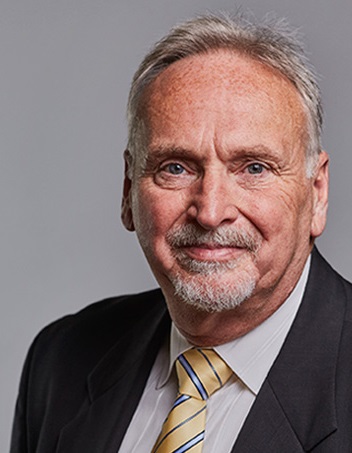THE Canadian Radio-television and Telecommunications Commission (CRTC) on Wednesday announced that it will adopt 9-8-8 as the number to call or text for Canadians who are in need of immediate mental health crisis and suicide prevention intervention.
Once implemented by telephone and wireless service providers, calls and texts to 9-8-8 will be directed to a mental health crisis or suicide prevention service, free of charge.
The CRTC noted that the implementation of 9-8-8 as an easy-to-remember three-digit number will help reduce barriers to mental health and suicide prevention resources. The number will enable greater access regardless of geographic location or socioeconomic status as it will be available from coast to coast, 24/7 and free of charge.
Furthermore, the ability to text to 9-8-8 will ensure that people in crisis who are unable to safely call, or prefer texting, are able to obtain counselling.
In order for 9-8-8 to function across Canada, 10-digit dialing must first be introduced in areas where 7‑digit dialing is still the norm. This includes Newfoundland and Labrador, northern Ontario and the Yellowknife area. The CRTC is requiring service providers to complete the transition to 10-digit local dialing in these areas by May 31, 2023.
Once the transition is complete, service providers will have six months to make the necessary changes to their networks to enable callers to dial or text 9-8-8.
This will ensure that 9-8-8 is launched across Canada at the same time, on November 30, 2023.
Currently, people in Canada who are experiencing mental health distress can obtain assistance through Talk Suicide Canada by dialing toll-free 1-833-456-4566. Residents of Quebec are encouraged to call 1-866-APPELLE (1-866-277-3553).
Assistance is also available through text. Adults can text 741741 and youth can text 686868. Quebec residents can text 1-855-957-5353. Talk Suicide Canada’s text service is available in the evenings from 4:00 p.m. to midnight EST by texting 45645.
Ian Scott, Chairperson and CEO of the CRTC, said: “We are taking a significant step in making mental health and suicide prevention resources more accessible to everyone in Canada. A single, easy to remember point of contact will provide much-needed help to those in crisis and will be crucial to saving lives.”
He added: “Although much work is left to be done to bring help to people who need it, we have set accelerated timelines to ensure that 9-8-8 is implemented as quickly and as efficiently as possible.”
Quick Facts
* The CRTC’s role in establishing three-digit numbers is to administer telephone numbers and require telecommunications service providers to implement 9-8-8 dialing across Canada.
* The Public Health Agency of Canada (PHAC) will determine the following:
– the entity that will manage the calls made to 9-8-8,
– the number which will be linked to 9-8-8, and
– the scope of the services offered through ongoing discussions with provincial, territorial, and Indigenous partners, and suicide prevention stakeholders.
* The CRTC held a public proceeding in which individual Canadians, Indigenous organizations, organizations providing mental health crisis and suicide prevention services, organizations representing consumer interests and Deaf, Deaf Blind, or Hard of Hearing Canadians, telecommunications service providers, and various levels of government provided their views.
* The CRTC has directed Canadian wireless service providers to inform their clients calling or texting 9-8-8 that it is not yet implemented in Canada, and provide them with information about suicide prevention services in Canada. The CRTC has also encouraged all companies providing voice services to inform their clients. In addition, providers have been directed to share this information on their websites.
* Between 2017 and 2019, there were approximately 4,500 deaths by suicide in Canada every year, which is approximately 12 deaths every day. Some populations experience higher rates and risk of suicide, including men, youth, those aged 45 to 59, those identifying as being part of the LGBTQ2 community and certain Indigenous communities.
Associated Links:











